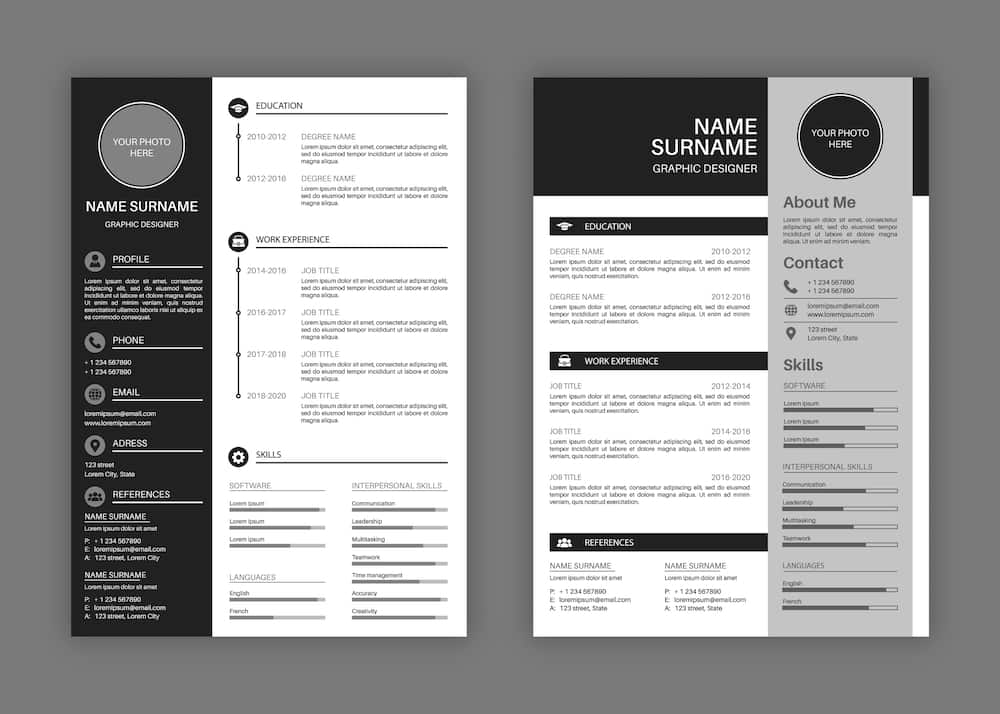Are you seeking guidance on writing a CV for an attachment? Securing an internship might seem challenging when you have limited professional experience. Yet, obtaining such an opportunity is vital as it helps accumulate hands-on knowledge and sets up your career path. Thus, crafting a persuasive resume that emphasizes your capabilities and eagerness to acquire new skills could sway your prospective employer in your favor.

An impressive resume goes beyond being merely formal; it acts as your ticket to career prospects. It creates an initial impact, grabbing the recruiter’s notice and distinguishing you from competing applicants.
Advice on crafting a CV for an internship with limited experience
Crafting a CV with limited work experience may seem daunting, yet it remains entirely possible. Below are several suggestions to assist you in developing an excellent CV tailored for college students:
Emphasise on your education
Provide information about your degree, related courses taken, academic honors achieved, as well as any significant projects or research connected to the position you’re applying for. This demonstrates your expertise and passion within the area of interest.
Emphasize the skills you can easily apply elsewhere.
Despite lacking work experience, you probably possess skills that can be valuable in many situations. Highlight softer abilities such as communication, collaboration, problem-solving, and flexibility, and support these claims with instances drawn from your academic endeavors, club memberships, or athletic pursuits.
Tailor your resume for the position
Customize your CV for each application by matching your qualifications and experiences with the job’s needs. Incorporate key terms found in the job posting and highlight how your past achievements demonstrate that you are well-suited for the position.
Utilize a professionally designed CV format.
Make sure your resume is professionally structured, simple to read, and free of errors. Employ distinct headers and bullet points for quick browsing, and keep font styles and spacing uniform throughout.
What is the most effective resume format for students?
Crafting an effective resume is essential for students embarking on their professional paths. An excellent student resume highlights their educational accomplishments along with pertinent experience and abilities that set them apart. While numerous student resumes serve as templates, these key components should always be incorporated into a strong student resume: 1. Contact Information: Full legal name, phone number, email address. 2. Personal Statement/Profile: Brief summary of your goals and what makes you distinctive. 3. Education Details: Degree pursued, institution attended, anticipated graduation date, GPA (if above 3.0), honors received. 4. Relevant Experience: Internships, part-time jobs, volunteer work related to field of interest. 5. Skills Section: Technical proficiencies such as software knowledge; soft skills like leadership or communication capabilities. 6. Extracurricular Activities & Achievements: Leadership roles held within clubs/societies, awards won during college years. Incorporating all this information will help create a standout document tailored specifically towards landing initial employment opportunities post-graduation.
Contact details

This segment offers employers the essential data needed to reach out to you for interview arrangements or additional questions. Correct contact info guarantees that potential jobs won’t be lost because of hurdles in communication. The following details should be included in this section:
- Complete name: Provide the entire legal name as it appears on official identification documents.
- Please supply a dependable telephone number at which you can readily be contacted.
- Use a professional email address, ideally one that incorporates your name.
- Current residence: Provide your present address, or alternatively, share just your county, city, or town; this way, you can maintain privacy without withholding all details.
- Include a link to your LinkedIn profile if it is current and appropriate for professional use.
Profile summary
This part provides an overview of your credentials, background, and career aspirations. It offers recruiters a quick glimpse into why you would be a solid match for the role. Include essential points like pertinent abilities, significant accomplishments, and professional aims customized to align with the specific job you're seeking.
Education
This part covers your educational history, typically a crucial factor for employers assessing how well you might fit into a position. It should encompass:
- Certification(s) attained: Explicitly mention the certification(s) you have acquired (for example, Bachelor of Science, Master of Arts).
- School Name: Please list the names of the educational institutions where you studied.
- Start and End Dates: Please supply the beginning and ending dates for every academic program you've participated in.
- Area of Study: Please indicate your primary field or discipline.
- Accomplishments and distinctions: Include notable academic honors, prizes, or acknowledgments (such as placement on the Dean's List, grants).
Work experience
This segment highlights your practical abilities, dependability, and professional contributions to the company. Should you lack formal work experience, this part ought to encompass:
- Highlight your voluntary roles by emphasizing the duties you undertook and the accomplishments you achieved during this time.
- Include details about your involvement in extracurricular clubs, sports teams, or organizations where you showed leadership, collaborated with others, and developed important abilities.
- Projects: Detail any academic or personal initiatives pertinent to the position, specifying your responsibilities and the abilities you utilized or honed.
- Freelance or part-time positions: Include details about any freelance projects or part-time roles you've had, regardless of whether they align with your target industry.
Skills
This part needs to emphasize the particular talents and proficiencies that qualify you for the job. This enables the employer to swiftly evaluate if you possess the required skills for the placement role. It should encompass:
- Technical Skills: Enumerate all your applicable technical competencies, including expertise with particular software, command of programming languages, or familiarity with key tools and technologies related to the position.
- Highlight Soft Skills: Emphasize your ability to communicate effectively, work well with others, solve problems, and lead when needed.
- Certifications and training: Include pertinent certificates, classes, or educational programs that bolster your credentials.
- If relevant, mention the languages you know along with your skill levels.
Achievements
This section highlights your achievements and your capability to produce tangible outcomes, distinguishing you from other applicants. It offers clear proof of your abilities and triumphs, illustrating your potential contribution to an employer. It should encompass the following:
- Awards and Honors: Please list any awards or honors you have obtained, regardless of whether they were from academic pursuits or extracurricular activities.
- Mention significant projects you've finished, outlining your responsibilities and the outcomes or effects produced.
- Cited works: Include references to any published materials like journals, scholarly papers, or literature whenever relevant.
- Key Achievements: Emphasize your principal accomplishments, including hitting important goals or being part of notable successes.
Interest and hobbies
This segment offers a broader perspective on you as an applicant, highlighting your personal traits, interests, and activities beyond your professional or academic life. It assists employers in assessing whether you would be a good cultural match and gaining insight into different facets of your personality. Include the following elements in this section:
- Highlight hobbies related to the job or field, showing your passion and dedication.
- Hobbies: Share some of the top hobbies that will set you apart and ignite conversations or pique interest.
- Innovative Ventures: Mention any inventive endeavors like writing, visual arts, or musical compositions that showcase your innovative thinking and ability to solve problems.
Additional aspects to keep in mind while crafting a resume

When crafting your initial professional resume, adhere to these guidelines for formatting and styling:
- - Summarize using brief phrases. - Begin each point with an action word. - Keep sentences concise and clear.
- Make sure it’s easy to read.
- Keep it left-aligned.
- Certainly! Please provide me with the text you would like me to paraphrase, and I will ensure there are line breaks between paragraphs in my response.
- In this manner, expressing thoughts omits personal pronouns.
- Don’t use tables
- Use either a font size of 11 points or 12 points.
- Set your line spacing to either 1.0 or 1.15 for easier reading.
Final word
Recent graduates and ongoing students frequently seek advice and guidelines on crafting an effective CV for internships. Even without extensive professional experience, you can create a compelling CV. Highlighting your academic achievements, pertinent abilities, and extracurricular successes will help demonstrate your value to prospective employers.
SANTIJAYA.co.ke has released an article on how to write an official letter. Clear communication continues to be essential across various areas of our lives, with formal letters being fundamental in professional exchanges.
Regardless of whether you’re seeking employment, communicating with a governmental body, or lodging a formal grievance, composing a precise and properly articulated official correspondence can significantly impact the outcome. To learn how to pen such a letter that conveys your point efficiently, peruse this piece for guidance on the process.